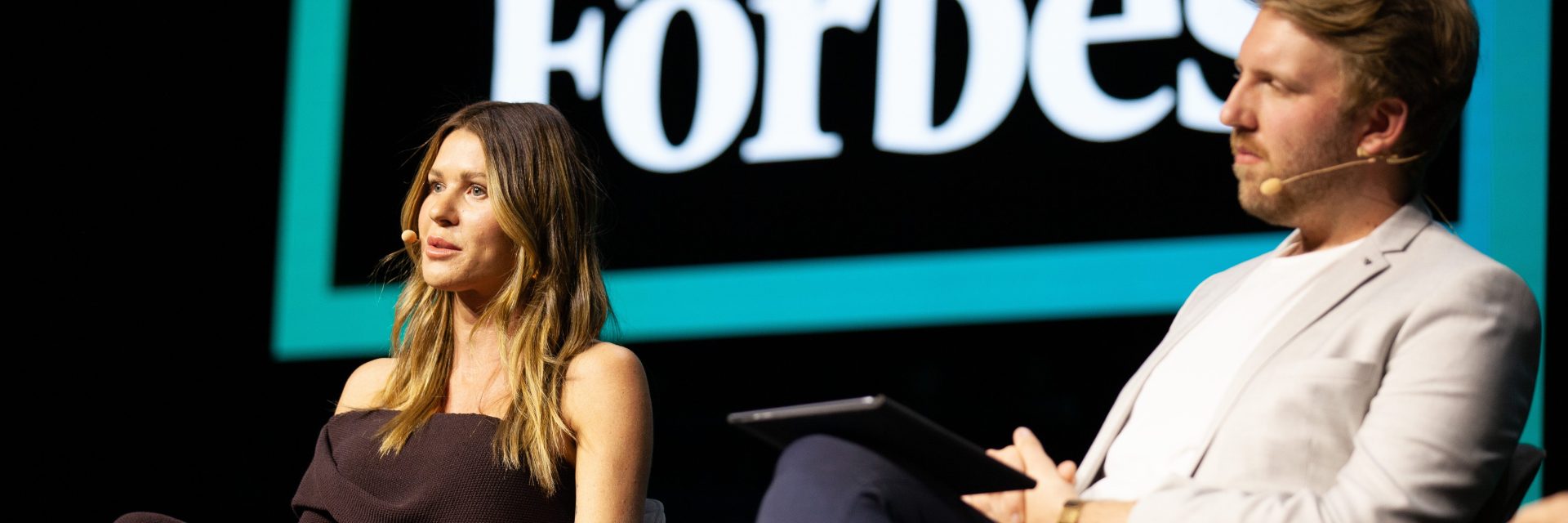Australia’s top founders and visionaries share their success stories and their insights on the biggest issues in business today.
Our coverage of the Forbes Australia Business Summit 2022 has now ended. Thanks for joining us. Coverage of the day was by Jane Lindhe and Elise Shaw, production by Anastasia Santoreneos and photo production by Stewart Hawkins.
Visit our Events page to see our upcoming events.
5:00PM: Don’t be a unicorn in 2023, be a cockroach
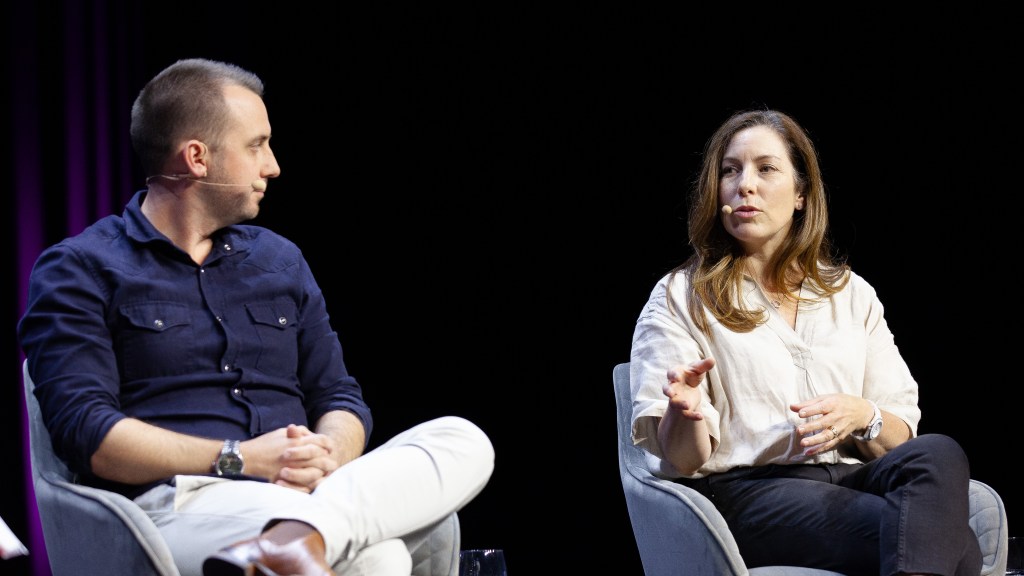
The Forbes Australia Business Summit heard from Australia’s top tech founders about what is new in tech and how they got to where they are today. The panel featured Tim Fung, co-founder of Airtasker, Emma Weston, CEO and founder of Agridigital and Chris Eigeland, co- founder of Go1.
Tim, you’re described as a visionary…where did you start in terms of development of your platform? As cloud computing came about did you have to change things up?
I think updates to the platform is an ongoing thing. One of the fallacies around software…is that somehow you build a platform and a machine and it just runs itself…but clearly its about consistent improvement and investment on the platform. We’ve re-written Apps, were-written entire code base…we’ve gone through many, many different cycles. It definitely changes, the job never stops.
Emma you’re the youngest business on this panel, but no less impressive. It’s my understanding that you are the nation’s latest digital grain management platform. At the time you launched, the agritech industry didn’t exist as it currently does – what has that journey been like?
The grains industry is characterised by paper and manual processes and things in people’s heads and whiteboards…and this is what it takes to get food on the table, literally. So what we were trying to do was take all of that and digitise it and put it into one platform. The job is certainly still not done. You’ve got an industry in agriculture which is actually the least digitised industry in the world and it’s also the world’s largest employer by a very long way. The scope and scale…is not to be underestimated.
Chris, you have achieved unicorn status. Boy from Queensland with a Brisbane-based business – last year you saw over 100% growth and 3,000 customers as you’ve been consolidating your footprint as one of the world’s largest corporate education hubs for on-demand training and resources. Where are these customers coming from?
We’ve been trying to solve a professional learning problem. The discovery is really hard, so if you jump on Google and type in leadership training. You’ll get tens of thousands of results. If you’re a business you don’t have one training provider you have 10, 20, 30 – you can have hundreds. We’re solving that problem by bringing together the best in class content…and doing that back-end work.
3:00PM: How must leadership change in the post-pandemic world?

Leaders are likely to need to make some incredibly tough decisions in 2023 as the economy continues to change and quick thinking and action will be crucial to their performance, delegates at the Forbes Australia Business Summit heard this afternoon.
Trusting your “gut feeling” and being honest and transparent are important parts of the equation in good leadership, as was discussed at a panel moderated by Women’s Agenda co-founder and publisher, Angela Priestley.
Panellists included: Ben Thomson (Employment Hero), Naby Mariyam (Coverhero) and Adam Jacobs (The Iconic and Hatch).
Tips for leaders in 2023
- Have a vision and a clear vision of how to solve the problem you’re focused on (Ben Thompson)
- To lead people you need to first really know yourself and put your ego aside (Naby Mariyam, CEO and founder, CoverHero)
- Recognise people’s differences as individuals and bring people together (Adam Jacobs)
- Be clear and upfront when making difficult decisions: “humans can take good news and bad news, what they can’t take is uncertainty” (Adam Jacobs)
- Remember when making decisions that people are human beings first. Be kind, but be clear (Naby Mariyam)
Adam Jacobs, founder of Australia’s top online fashion retailer The Iconic and recruitment business Hatch, says he has conducted thousands of job interviews during his career. Every time he has made a mistake when hiring has been when he hasn’t “followed my gut”.
“When I made a mistake it was always relying on what people looked like in paper,” he says. “Getting it wrong can be the difference between succeeding and not.”
Being a mission-led business can also help businesses in recruitment and retention, Jacobs says.
2:00PM: Fad diets to $400 million – Lessons from building a vitamin empire
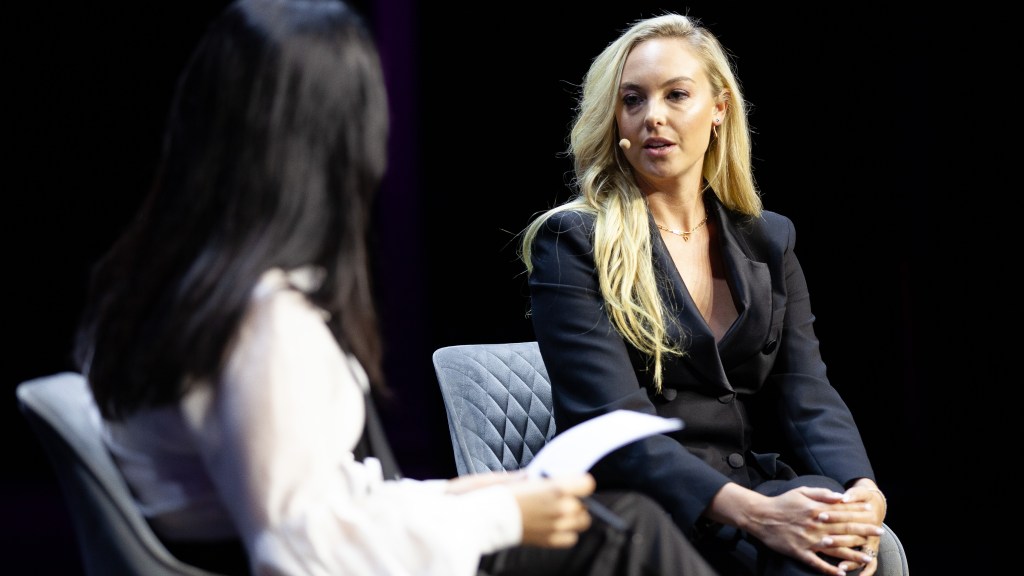
A diary about her struggle with food spurred Jessica Sepel to create better health goals.
“You name it, I tried it,” Jessica says about fad diets. When she started a blog, she wanted to tell people that there was a better, healthier way to live.
Building a community came first for eight years, rather than building a company, and JSHealth Vitamins came later, four years ago. She was thinking she was happy staying small.
“I felt there was a space in the industry to provide something better for my clients. I was tweaking formulations. I wanted to support my clients with really good formulations.”
Now with a big team looking after the $400 million business, she stays true to “my calling, my passion”.
She focuses on the customers to make her decisions, but is still getting her head around managing a team and aiming to build something with a wholesome culture.
“I’m the creative and visionary. That’s a different side of your brain. I’m not good at operations. I want to be building formulations. I’m in a corporate job that is 24/7 … I’m allergic to strategy and business plans. I have to focus and hold onto my end goal vision.”
Jessica says, “This was not aspirational, this happened to me accidentally … I take ingestible vitamins very, very seriously.”
Jessica understands that she has a long way to go. “The journey is more fun than hitting the financial goals. I find it divine and joyful. I would tell entrepreneurs, ‘Enjoy the building.’ It’s a lot of fun.”
1:00PM: Where’s the money – and how can you access it?
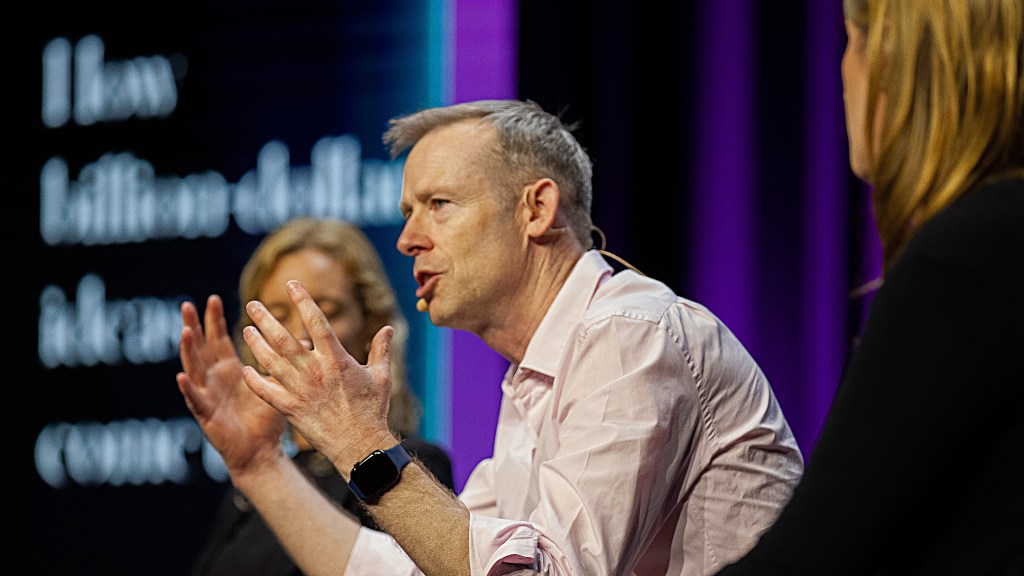
Australia’s top venture capitalists will be looking to invest in software technology, healthcare solutions, artificial intelligence and environmental solutions in 2023, but founders will need to “live and breathe” their ideas in order for investors to take notice, delegate at today’s Forbes Australia Business Summit heard.
Three of the country’s most prominent venture capitalists, Rick Baker (Blackbird Ventures), Elicia McDonald (AirTree Ventures) and Kim Jackson (Skip Capital) have provided some insight into what they are looking for when investing and the areas of growth they predict for 2023.
What do the VC’s want to see in founders?
- Founders who live and breathe their idea and feel an overarching need to solve a problem (Rick Baker, Blackbird Ventures)
- Don’t be secretive: “someone says I have a really amazing idea, but say ‘I can’t tell you about it because it is super-secret'”. Signing non-disclosure agreements is rare in (Rick Baker, Blackbird Ventures)
- Founders with some naivety but a curiosity to learn more are appealing. Knowing what they don’t know but having the “passion and drive” to execute a plan is important (Rick Baker, Blackbird)
- Being able to articulate what you do very well and the ability to talk about how you plan on making that happen (Elicia McDonald, AirTree)
- Having lived through some challenges and learned from it is appealing (Elicia McDonald, AirTree)
- Passionate founders looking to solve large, painful problems who are looking to make the world a better place (Kim Jackson, founder Skip Capital)
- Founders should be able to succinctly describe the problem they intend to fix and how in two paragraphs (Kim Jackson, Skip Capital)
- The ability to think differently about solving common problems (Kim Jackson, Skip Capital)
- Don’t forget the name of the person you’re talking to, or the company – which can be common when talking to numerous potential VC investors (Kim Jackson, Skip Capital)
What do VC’s want to see in the ideas or businesses they invest in?
- A vision for a business that can offer something that is 10 times better than what is available (Elicia McDonald, AirTree)
- Ability to allocate 10-20% in ownership to investors and have access to a very large market (Elicia McDonald, AirTree)
- Businesses should thoroughly understand the VC’s they choose to work with. These relationships usually last around 10 years (Elicia McDonald, AirTree)
The current market is tough, but opportunities do exist
- Areas of potential investment include software, AI and surrounding infrastructure models, Agtech, environmental solutions and healthcare
- 2021 was a huge boom for tech, however 2022 is vastly different, with job layoffs and economic pressure
- Some companies will not be able to secure funding, but for those that can – take it now (Rick Baker, Blackbird)
- During the tough times, learn on others who have been through challenging times (Elicia McDonald, AirTree)
12:00PM: The new rules for accelerating growth
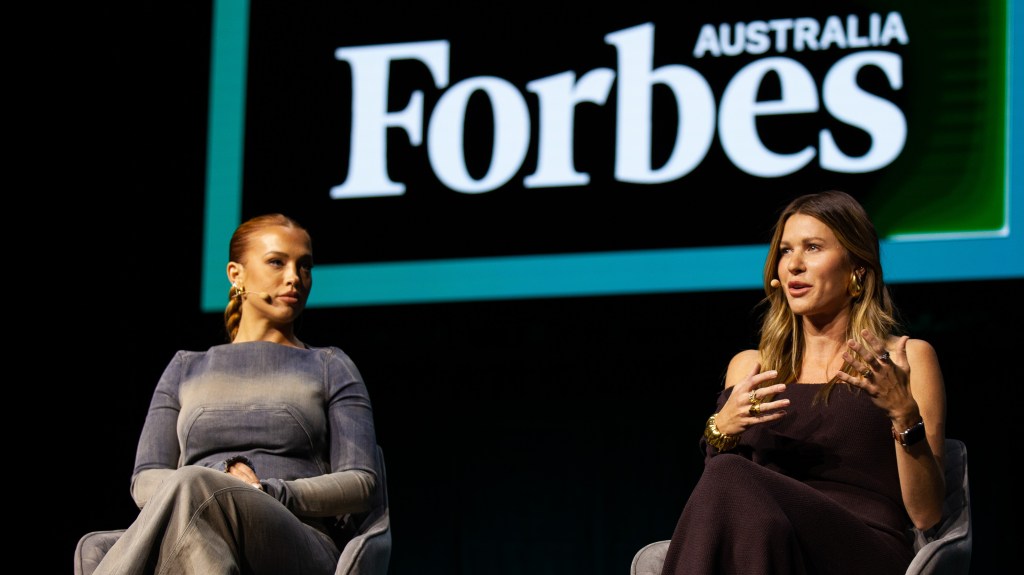
Luck, self-belief and a determination to never give up are key to successfully accelerating growth.
“Luck can be a big part of success. Your team drives growth year-on-year,” says Shaun Wilson, founder of Bondi Sands.
Triangl co-founder Erin Deering agrees saying, “We had a lot of luck. We started the business in 2012, around the same time as Instagram, and rode that wave. We wanted to sell one bikini a day and we were selling 2,500 a day at our peak.”
For Pippa Hallas, CEO of Ella Bache, the story was slightly different. Hallas’ great aunt was Ella Bache, and the business began at the beginning of World War II.
“She was living in Paris,” Hallas says. “The business started around the kitchen table. I spend a lot of time thinking about disruption. One is constant reinvention and technology. Relationships and personalisation is the second thing we think a lot about. The third is attention and how you amplify the brand.”
Creator Tammy Hembrow was early to social media and thought there was so much more people could do on the platforms. “But I am not a TikTok girl,” she says. “What I was doing in my life fit perfectly together to create my businesses. It is super important to show what is different about you and just be yourself.”
These entrepreneurs are very aware that things can never stand still if you want to grow, expand and succeed.
Ella Bache is almost 100 years old, but you should never leave change too late, says Pippa. “Our business model today is very different to how it was years ago.”
Self belief is really important, says Tammy. “You need to have passion, and believe you will succeed. My step-dad was a successful entrepreneur, I started to read the books he had and decided I wanted to be an entrepreneur.”
Never give up and be inventive in your approach.
Erin tells the story of how Triangle was sending bikinis to Kendall Jenner’s friends, “hoping to hook the big fish”.
“One morning I opened my emails and …. Kendall wrote that all her friends were wearing Triangl, and she said ‘Hey where’s mine?’ We were like, ‘Got you!’ We sent her the whole collection.
“The power of celebrity got us into the American market with just one girl. A lot of what we did is still relevant today,” says Erin. “There are certain metrics you can apply. Think of who is truly influential, rather than the influencers. Don’t give up.”
Being able to invent new ways of telling the story can be influential to the outcomes.
“Our role is to be translators. There is so much information coming at us in these days,” says Pippa.
A customer centric approach will help you make decisions, says Shaun. “Insights give you something, but doesn’t give you everything.”
Tammy says you should look for feedback from “everyone around you”.
Erin says developing a relationship with the customer is enormously important. “The customer can often get put down the priority list. The customer was at the top of our list every day. Pay attention to what they are saying.”
Don’t forget the personal touch, the panel says, whether that is person-to-person or in how you reply to emails and build trust by being real, available, listening and authentic.
11:00AM: From operating out of his garage to running a $2.2 billion company: SafetyCulture CEO Luke Anear tells the Forbes Australia Business Summit how he did it
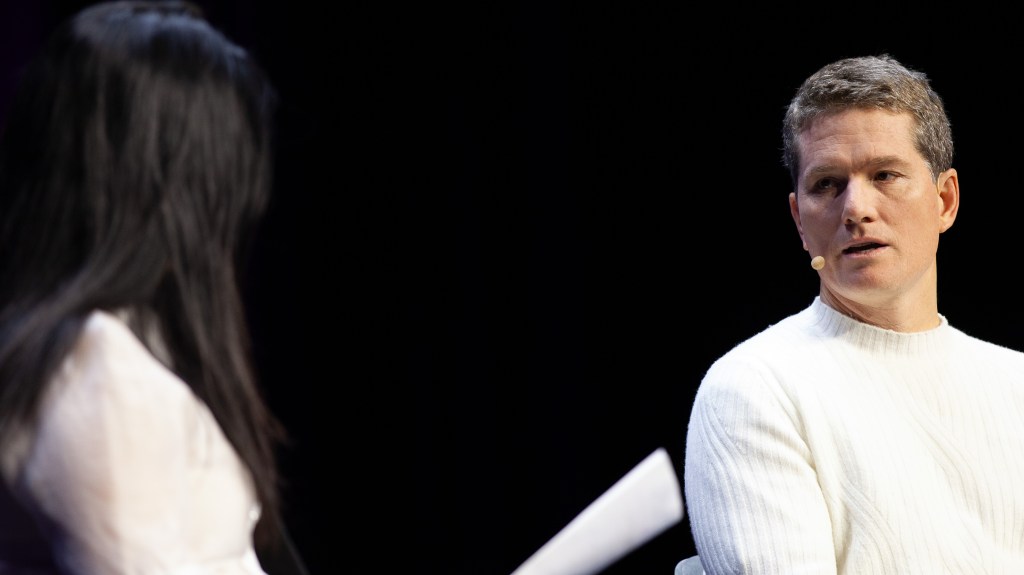
“You’ve got to have aptitude and attitude…and I think one of the most common things holding people back is thinking too small”, SafetyCulture CEO and founder Luke Anear says.
Speaking to Forbes Australia Editor in Chief, Sarah O’Carroll, Anear says having tenacity and a great idea that offers people a solution to an immediate problem are key elements of his success in building his $2.2 billion company, SafetyCulture.
“My superpower was naivety most of the time. If I knew how hard it would be I might have chosen something else,” he said.
SafetyCulture is a global tech company that offers various workplace safety solutions and more recently, insurance. Anear – a former private investigator – began the business in his home garage in Townsville and developed it into a $2.2 billion, with backing from Blackbird Ventures and other high-profile investors.
“Pilots have been using checklist since the 1930s, surgeons do it all the time to prevent complications – I thought why couldn’t everyone use a checklist,” he said. “Anytime a plane takes off, anytime a hotel room gets cleaned, there’s a good chance they’re using SafetyCulture.”
Another key factor of success is listening to advice from those who have succeeded in business before him. One was a local small business owner, Bill Smith, from his hometown of Townsville and another was Atlassian co-founder, Scott Farquhar.
“I describe my job today as one of perpetual incompetence, and the minute where I am constantly doing something I don’t know how to do, and the minute I figure it out, I have to hire someone who is better than me to go and do it…and I am comfortable with that.”
More to come…
10:00AM: Doing business in the new economic environment
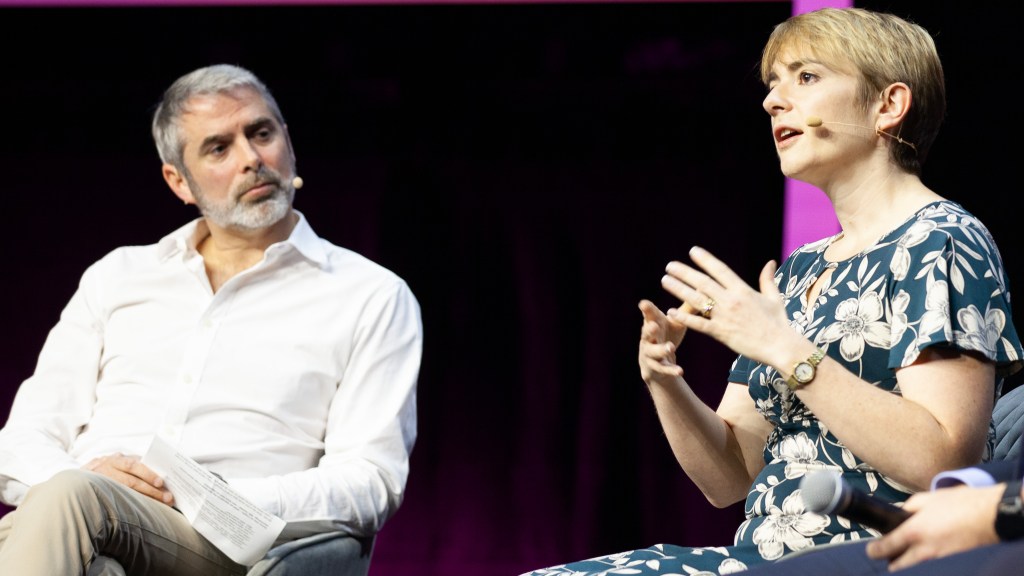
Moderator, Paul Colgan: Let’s talk about crypto and the collapse of FTX is the collapse of an industry. What have we learned?
Sally Auld, CIO at JBWere: Crypto might not be dead, but it is probably critically injured. Currency should be a medium of exchange. It needs to be store of value, and a unit of account. On all three measures, it is hard to argue that crypto stands up as a genuine currency. From that perspective we have always been a little bit cautious about it. We had to be convinced that adding crypto into a portfolio that it would offer better returns with less risk. To us that wasn’t really clear. We struggled to get our heads around that there a really compelling reason to add that into the mix.
Johnathan McMenamin, Senior Economist, Barrenjoey: We don’t think there will be a flow-on to the blue chip and technology areas. There is room here for regulation. You can’t take away all of the risk from an asset class. We might get some legislation next year. Australia is a global outlier here in this space. There is very little regulation, but you would probably argue that it is worthwhile.
Dr Sarah Hunter, Partner at KPMG: New technologies tend to be very disruptive. The market doesn’t always get it right, neither do companies. But ultimately this disruption is what drives productivity growth forward. We’re seeing the downside at the moment. But there are so many applications for blockchain. While something might not always work, it doesn’t mean that it is a complete disaster.
Paul: Everyone is talking about inflation. What is driving it?
Sarah: The dynamics around inflation have shifted over the past 12-15 months. It was concentrated and added to by the conflict in Ukraine, but the concentrated pressures are starting to ease. It’s now becoming more domestically based. That to me is a sign of robust demand. Going forward I’ll be looking at the supply dynamics. Things are starting to cool off, but here in Australia, I don’t think we are there yet.
Sally: The supply chain issue has almost resolved itself. Effectively, as a source of inflation we have to worry a lot less about that. It is less about supply now and more about demand. Less about goods inflation and more about services inflation. Central banks are saying they can’t see themselves getting inflation back to target unless they take some of the heat out of the labour market. The key question from an economic perspective in 2023 is how much damage do they have to inflict on labour markets to get inflation trajectory consistent with their targets?
The US Federal Reserve and the RBA are indicating that they think they can get inflation back to targets without inflicting too much damage on the labour markets and pushing unemployment higher. We are a bit more skeptical that central banks can deliver the goldilocks outcome. My expectation would be that unemployment rates will probably rise by more, both here and in the US, than central banks expect at the moment.
Paul: China is our most important trading partner. What will China’s return to more conventional engagement mean for the global growth picture?
Sally: China has returned to engagement with the rest of the world after a period where they appeared to deliberately isolate themselves. China’s growth outcome will be far below its target, maybe at around 3% if they are lucky. Next year will be better, but only 4% or 5%, which is not that strong for China. Yes, they are our major trading partner, but in terms of growth we are well past the peak there and it will be a different environment going forward for a lot of Australian businesses.
Johnathan: The next couple of years are not clear yet. They [China] have a long way to go on the softening of the Covid-zero policy. The changes they have made in the property sector are probably more consequential for Australia.
There are big structural trends that Australia is well positioned for. If China is opening its doors, then you also have the supply chain issues easing which makes it easier for Australian businesses that have suffered through this period when goods have been so disrupted.
Paul: Let’s talk about the three Rs: Rates, Remuneration and Recession risk. How should a business be thinking about next year?
Sarah: There’s a turning point, having come out of general recovery. The economy is running very hot. Businesses are short on people. We can’t keep growing at the current pace. We do want to slow down and take some heat out of the economy. I would be looking at a few things for business.
I’d be paying attention to export markets, and where there is growth in the global economy. New markets are opening up all the time. Good for agri business, manufacturing, high tech high productivity products in that space. We should be looking at the reopening of the border. There will be a return of international students, an influx of them, that will be a real opportunity for businesses. Working holiday visa visitors are coming back along with temporary workers. There is a lot that is really positive that is coming back into the economy. But there are headwinds, especially for businesses that are leverage and looking at higher interest rates. Businesses will need to be adaptable. Know the challenges for particular groups and think about how best you can position yourself in the market place.
Paul: Where will interest rates stop and what is the impact that will have?
Sally: The RBA has come a long way in a short amount of time. There’s a significant lag in the real economy. It becomes quite a judgement game. Central banks were late to start, and that was really the case here in Australia. Many have had to shut their eyes and get rates to a level that is quite restrictive. How restrictive does monetary policy have to be?
Unemployment hasn’t been that low for half a century. We’re trying to bring inflation down but hold on to as much as we can with employment. I think there will be a 25 basis point hike in December then a two month break. Data will start to show signs of moderation, but they will have 2 to 3 rate hikes in 2023 to get to 3.5 or 4%.
I’d give a recession at 50:50
Net migration will be huge. We need to slow economic growth to get inflation down. The magnitude of that challenge is a pretty big one. 2-3% is a long way away.
Johnathan: We would give a 3.6% forecast for rates. Somebody’s going to have to wear the pain.
9:00AM: The Forbes Australia Business Summit begins
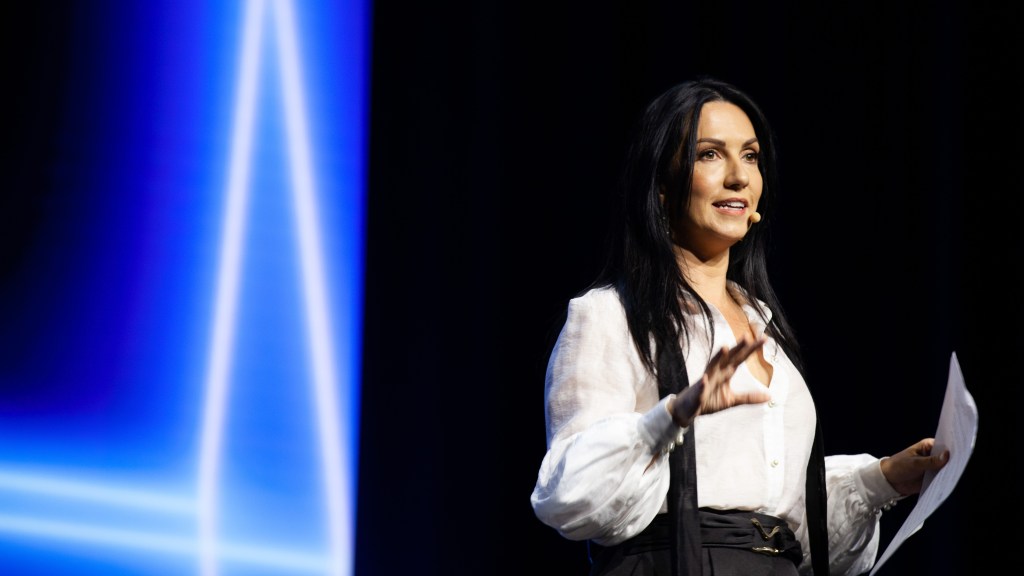
The Forbes Australia Business Summit has kicked off at Sydney’s ICC. Opening the event, MC Deborah Clay, says: “Today is about you and ideas that change the game”.
The summit will feature Australia’s most notable leaders, and focus on tech, talent and growth. It will provide delegates with ideas that they can take back to their companies and implement.
Welcoming delegates, Forbes Australia Editor-in-Chief Sarah O’Carroll, says: “When it comes to success, nothing beats hearing from those who have done it before.”
“The timing for Forbes Australia couldn’t be better”, Forbes Media Chairman and Editor-in-Chief Steve Forbes adds.
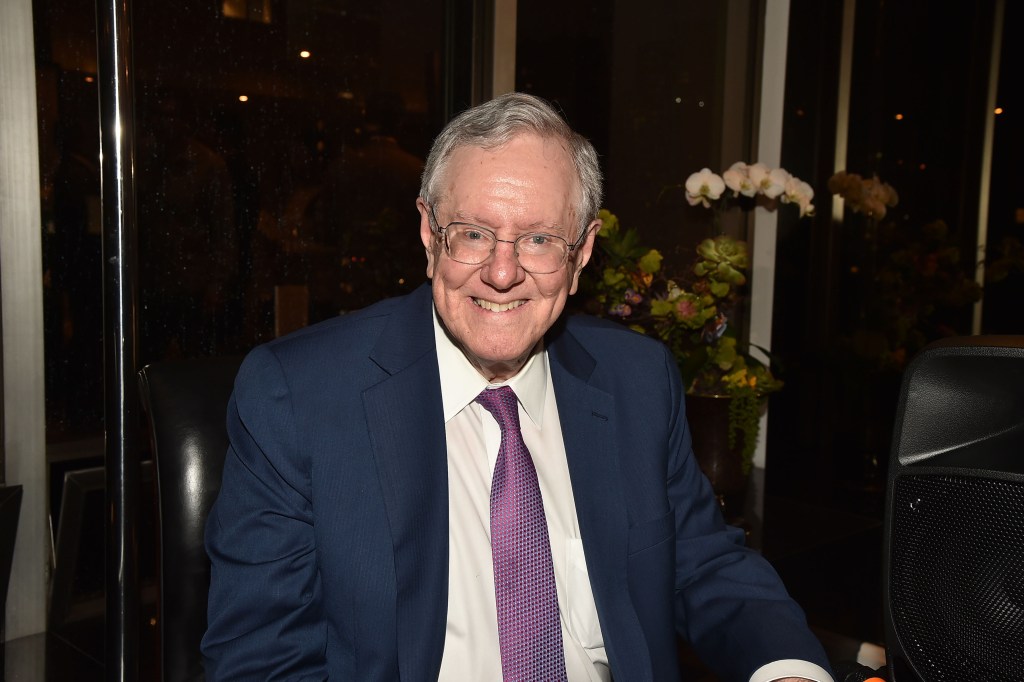
“The region is becoming more critical and getting more attention, and Australia is in a primary position. Australia…has demonstrated great resilience over the years. You had 30 years without a recession. You’ve handled the situation with China with real skill – making sure you could make the adjustments that needed to be made.”
Australian companies encapsulate the entrepreneurial spirit of Forbes, which was started by Forbes’ grandfather, Bertie Charles Forbes, more than 105 years ago. The nation’s tech market is a real area of growth that will allow the country to excel in innovation, Forbes says.
“I think Australia is going to be joining the ranks of Silicon Valley, Israel and a few others as a hot point of high technology. You’ve got the ambition, you’ve got the talent to do it. Timing couldn’t be better.”
While he notes that there will be some short-term turbulence in the economy due to macroeconomic factors like interest rates and inflation, long-term, Forbes says the global economy will improve.
Read some of our curtain raisers from some of the founders attending the Summit:
Steve Forbes: You don’t fight inflation with interest rates
Erin Deering co-founded a $45 million business. Here’s how she knew when to walk away from it
How Jessica Sepel turned $40k into a $426 million vitamin empire
‘Who’s on the bus’: The Iconic co-founder Adam Jacobs on the lead indicator of success
